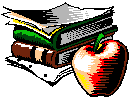 Rethinking
The Academy:
Rethinking
The Academy: Rethinking
The Academy:
Rethinking
The Academy:It is necessary for scholars who are interested in the electronic means of disseminating scholarship to explore and critique traditional means of knowledge-creation. Of particular interest is the academy's training program (aka "graduate school" or the "Ph.D.") which aims to produce individual scholars - rather than collectives or teams - who then work to become expert in their fields and thus build their own careers.
This individualistic role is essentially a legacy of the genius paradigm of the Romantic era, in which the writer - usually male - writes his masterpieces alone in a bare garret; we are still influenced by the model of the starving artist. The lure of genius still affects presentation and publication modes such as conferences, print journals, and newsletters and is part and parcel of the set of assumptions that makes the conservative mindset of the academy resist collaboration -traditional scholars ask how to determine who did what in a collaboration so that the academy can properly reward the "right" person with tenure and promotions. The answer, of course, is that people who collaborate work together, so reward them all collectively.
Second, in critiquing the remnants of the genius paradigm, we will also critique the present practice of "publish or perish" - and suggest other ways of continuing the task of the university, by contrasting the present system to the types of knowledge-making possible in cyberspace. That, of course, will be further discussed in Electronic Ways of Doing Scholarship.
Third, and finally, it is necessary for us to focus on the successes of traditional scholarship - are there, in fact, things that the traditional means of creating and disseminating knowledge that are better than, or at least as good as, non-traditional and electronic scholarship? If so, is learning the technology necessary to do electronic scholarship an efficient use of time for the scholar bringing out her next article or book?
Last Modified: August 2, 1996
Copyright © 1996 by Keith Dorwick